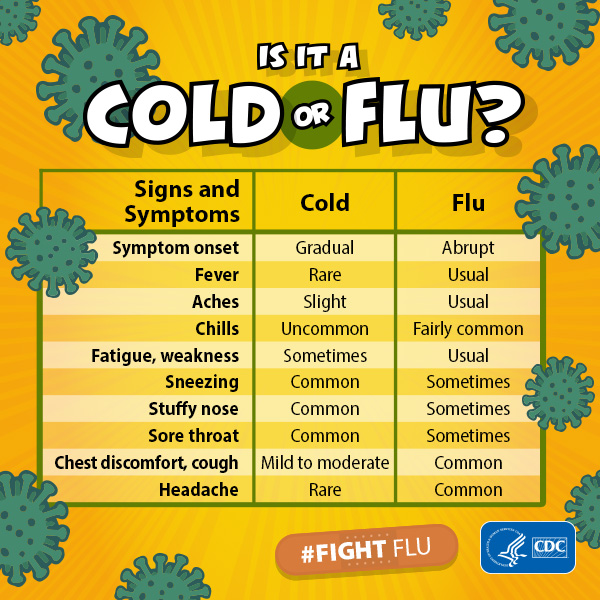Today's Medicine
Is it a Cold or Something More?
Published: Dec. 17, 2019

As temperatures dip, I know one thing is certain: Methodist primary care providers will be seeing a lot of sniffling, sneezing and stuffy noses. Cold and flu season also brings pneumonia and other more serious infections.
So how are you supposed to know if your cold is just a cold, and when you should see your doctor?
Symptoms of a cold
The common cold is caused by several viruses, but they all present with similar symptoms: scratchy throat, cough, sneezing and a runny or stuffy nose. It’s also not uncommon to have a mild headache and fatigue, and to just generally feel unwell. What you shouldn’t expect is a fever (100.4 F or higher in adults) that lasts for more than a few hours.
 What are common mimickers of a cold?
What are common mimickers of a cold?
Many common illnesses can mimic a cold. Here are just a few:
Allergies: Allergy sufferers often experience lots of drainage from the nose down the throat, and perhaps red or itchy eyes.
Sinus infection: If you have severe sinus pain and thick drainage from the nose that lasts more than seven days, you might have a sinus infection.
Bronchitis: Bronchitis is often to blame for a chronic, dry or a phlegmy cough. You may also experience chest tightness, headache, shortness of breath, sleeping difficulty or a sore throat.
Influenza: If you have a sudden onset of fevers, muscle aches and headaches along with your cold like symptoms, that is suggestive of the flu.
Pneumonia: The common cold shouldn’t give you fevers, chest pains and shortness of breath. Those symptoms could be concerning signs of pneumonia.
When should I worry?
If you have shortness of breath, wheezing, chest pains or temperatures higher than 100.4 F, then it’s best to see your doctor. Your doctor can perform a physical exam and determine if any additional testing is necessary to rule out more serious infections.
A trip to the doctor’s office might also be helpful if you aren’t feeling better in seven to 10 days after your symptoms start. Most common colds should be improving after a week, but up to 25 percent of them can linger for up to two weeks.
If you suffer from any immunocompromising conditions such as cancer, lung disease or heart disease, it might be a good idea to let your doctor know how you are feeling sooner rather than later.
What can I take to feel better?
Unfortunately, many colds just have to run their course, but there are certain over-the-counter (OTC) medications that may help.
Acetaminophen (Tylenol) and NSAIDs, such as ibuprofen (Motrin) and naproxen (Aleve), can help with body aches, headaches and fevers. Antihistamine-decongestant combinations work better for stuffy noses and drainage than either medication alone. Cough medication, like dextromethorphan, can relieve a nagging cough. If you have questions about what OTC medications you can take, don’t hesitate to talk with your pharmacy or your primary care provider.
It’s important for you to know that antibiotics won’t make you feel better sooner or prevent your cold or bronchitis from turning into a more serious problem. In fact, when researched, people with colds and bronchitis who were treated with antibiotics didn’t heal faster and actually suffered more side effects than those who weren’t given antibiotics!
What if I don’t know what to do?
If you aren’t quite sure what to do with your symptoms, your Methodist Physicians Clinic provider is happy to help. You can call and ask to speak with your doctor’s nurse to review your symptoms and determine if you need to be seen or can try to treat it at home. If it's outside of clinic hours, Methodist offers Urgent Care services at locations throughout the metro area. Those clinics offer evening and weekend hours where you can see a physician in person.
If you are too sick and don't want to leave home, then check out Methodist Virtual Care. Board-certified doctors are available online 24/7 to diagnose, arrange follow-up or prescribe medication. They are available on your computer, tablet or cellphone and can provide a quick evaluation of all your cold and flu concerns.
More Resources
- Try these 10 tips to stay healthy during cold and flu season
- Learn when to use the emergency room vs. Urgent Care


